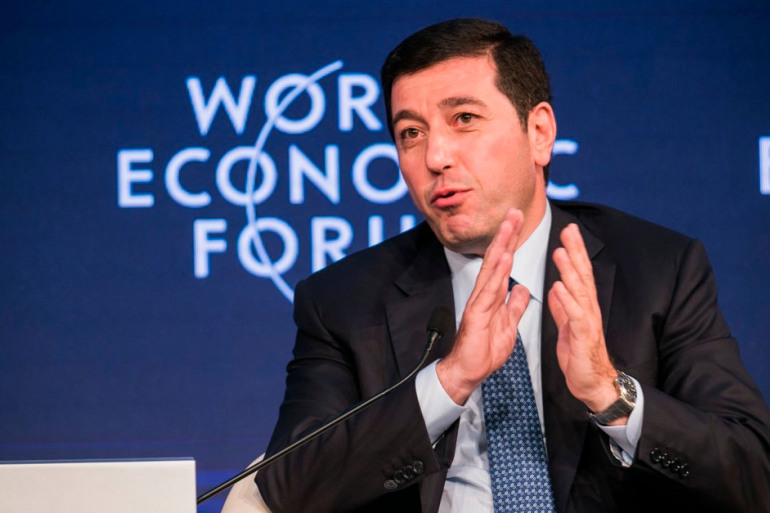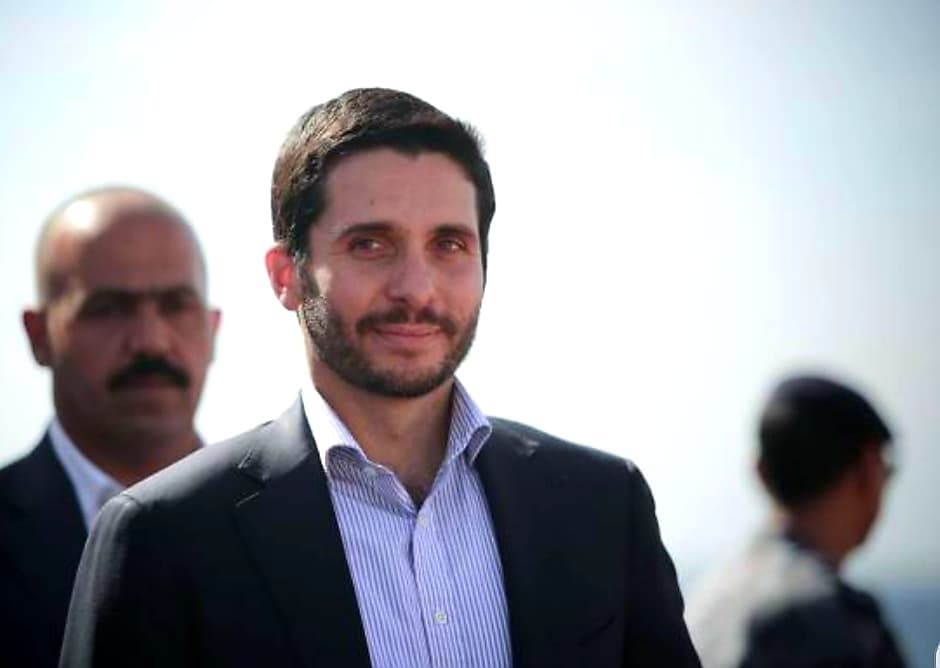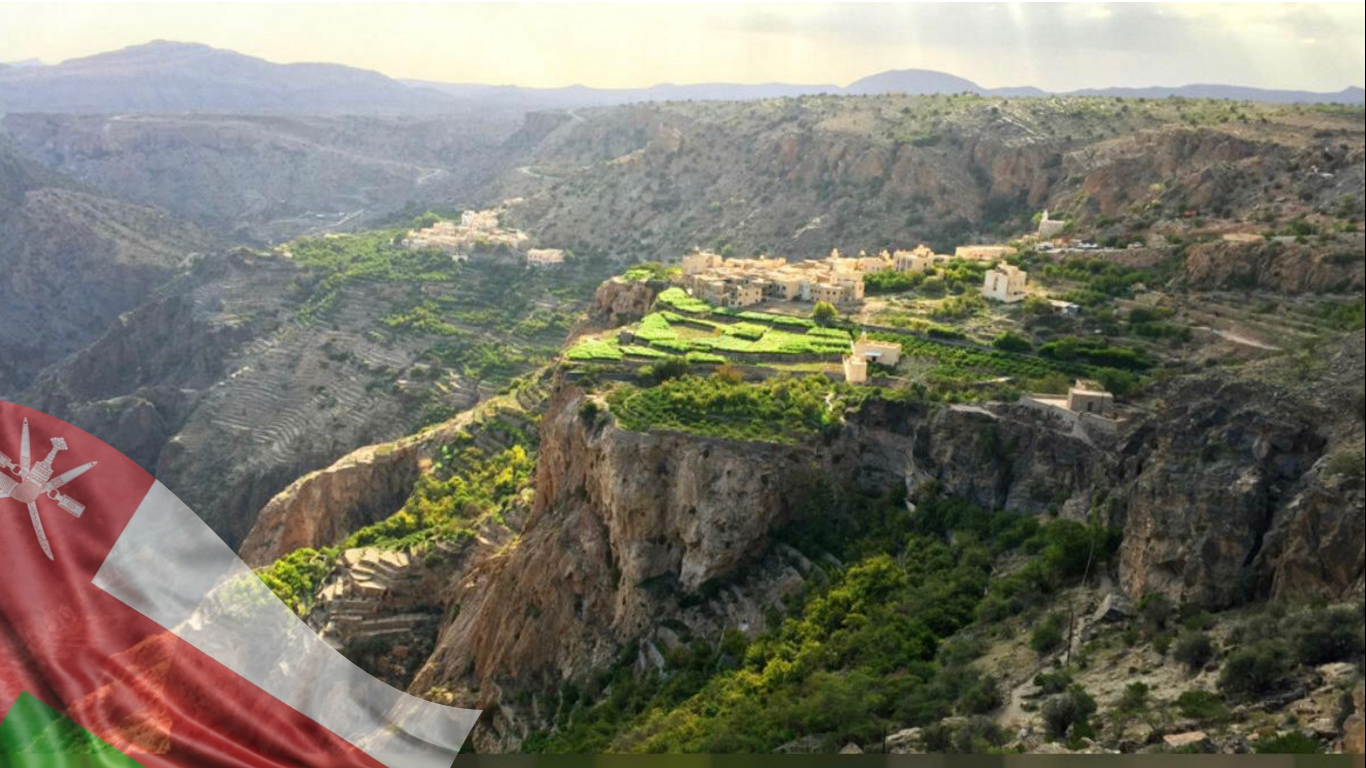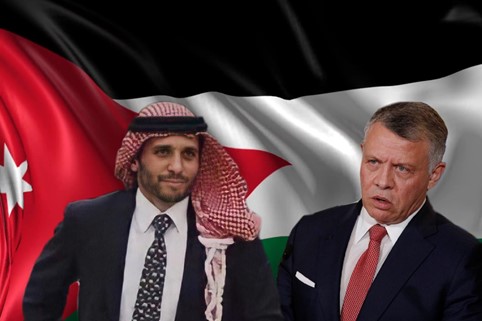On Wednesday 7 April Jordanian King II. ‘Abd Allah though not directly, but in a written speech addressed his people about the crisis that was causing turmoil since Friday the week before. On that Friday night suddenly wide-ranging arrests started mostly in the capital and most media outlets claimed a coup attempt. That was hastily refused by the authorities and some outer sources, but the was a high level of uncertainty in the Jordan and most fingers pointed to the young half brother of the king and former Crown Prince Ḥamza. Amidst the contradicting claims and narratives, he was the center of the attention as either a potential usurper or the mastermind behind a possible coup.
King ‘Abd Allah’s speech this Wednesday put an end to the turmoil, at least for now. He assured everyone that Prince Ḥamza became under his personal custody and matters concerning him became delegates to his uncle, but he failed to answer the most intriguing questions about what really happened and who was behind it. Therefore the crisis is over but casts long shadows on the internal dispute within the royal family and the regional conflict around Jordan.
This all comes in a time of strained relations between Jordan and Israel on the one hand, and the Jordanian kingdom and Arab states of the so-called “normalization” with Israel on the other. This met with the already existing family tensions, and most signs now indicate that this incident truly was a regional attempt to put pressure on Jordan exploiting family problems and reasons for revenge.
What really happened in all its detail will probably stay hidden for a long time, but while most of the crisis can be outlined it is a painful lesson about how intricate Arab internal power politics can be.
A short by “painful” crisis.
On 3 April Friday, while most of the world was still busy celebrating Easter at night wide range of arrests started in Amman and certain parts of Jordan. Details were scarce at the beginning most internal sources either downplaying the event or indicating a rapidly foiled coup attempt. However, the footage shown that night by the Syrian state tv show that the arrest campaign was indeed a major and wide-ranging operation.
The Jordanian press indicated “attempts to undermine the stability of the country” – from which many deducted a coup attempt – and talked about some 70 people arrested. Most of these were not named specifically, but later accounts indicate former military and political leaders and some tribal elders. Three names, however, came out early on giving some insight into what really could have been going on.
The first of these names is Ḥasan ibn Zayd, who is a member of the Jordanian Hāšimī royal family, though not a close relative of the current Jordanian monarch. Ḥasan ibn Zayd, whose elder brother ‘Alī ibn Zayd served the Jordanian armed forces and died in Afghanistan in 2010 is a Saudi double citizen, who resides in Riyadh. He is a lesser-known figure and more of an entrepreneur, but formerly he was King ‘Abd Allah’s representative to Saudi Arabia. He is thought to be close to the current ruling elite in Riyadh.
The second mentioned name was Bāsim ‘Awaḍ Allah, the former director of the Jordanian Royal Court office, who later became King ‘Abd Allah’s special envoy to Saudi Arabia. Even more, he became a personal advisor to Saudi Crown Prince Muḥammad ibn Salmān. Thus he is the second indication that whatever happened had some connection to Saudi Arabia. This seemed all the more plausible given the unfortunate reputation the Saudi Crown Prince and his Emirati mentors have built up in recent years by meddling in other Arab states’ internal affairs. For that, the four years long blockade against Qatar is a bitter reminder.

Only days after the alleged coup Saudi Foreign Minister Fayṣal bin Farḥān ahead of a smaller delegation paid a surprise visit to Amman expressing the Saudi support for the Jordanian king. Some views calculated that while there might be very possible complicity by Saudi Arabia in the events that did not have approval from Saudi king Salmān and the delegation wanted to clarify this important point. Nonetheless, certain claims suggest that the Saudi delegation was keen on Jordanian authorities releasing ‘Awaḍ Allah and handing him over to Saudi Arabia. There is no indication whether that happened or not, but even if it did there can be many interpretations to that. ‘Awaḍ Allah might have been involved in a coup attempt and the Saudis wanted to save this important asset, or he was caught in the crossfire of arrests, and the Saudis wanted to secure their protégée. Whatever the case is, however, his role soon became secondary to the third and most impotent name in this crisis.
This third person is Prince Ḥamza ibn Ḥussayn, a younger half-brother of King ‘Abd Allah. He is the eldest son of the sole surviving wives of late King Ḥussayn, Queen Nūr, who mostly resides in the U.K. and the U.S. When ‘Abd Allah became king in 1999 Prince Ḥamza was named as Crown Prince, but he was stripped of this title in 2004. Ḥamza had a long military history according to the family tradition and was thought to be a relatively minor figure after his dismissal as heir-apparent living a quiet life.

The night the crisis broke out many sources claimed that he was put under house arrest, or might even be arrested. This was soon denied by the Jordanian authorities stating that he was not “held up” in anyways. That very night, however, the Prince uploaded a video message saying that he was contacted by the Jordanian Chief of Staff asking him not to take activities and contact people in any way jeopardizing the security of the state. Later that night he presented a second longer video explaining what happened. In that he stated that most of his associates were detained, he was asked not to leave his house and all escort was withdrawn from him, while communications were cut. This indeed equals house arrest, even if not in an official way. Later a voice recording of the conversation between Prince Ḥamza and the Chief of Staff was also published proving much of what the prince said.
According to him, these measures were justified by the Chief of Staff and by the director of intelligence that he was appearing in forums and contacting people, which led to agitation against the state. Which is in fact correct. As early, as August 2020 Prince Ḥamza appeared in a forum in Amman talking about the high level of corruption and mismanagement in the country causing most of the youth to leave the country. And this defiant behavior was very apparent on his second video on 3 April 2021, by which he heavily criticized the state management and the leadership, though not specifically the king himself.
Soon after the crisis broke out and the first barrage of international statements was over, some states pledged support, while others more renouncing the foreign meddling in Jordan. The guesses by analysts went far and wide what could have really happened. And most Jordanian voices two distinct – though not necessarily contradicting – scenarios were suggested. Some, mostly opponent figures residing abroad claimed that Iran or some other local states using some members of the royal tried to exploit the growing dissatisfaction of the people and staged a coup. Which might have failed, but is not over. According to this version, Prince Ḥamza used the connections of his mother, Queen Nūr to bring support and usurp the throne. The other line, mostly those within the state, some of them being members of the opposition had a different view, as Prince Ḥamza might have been used in a coup attempt, or not, but behind him, there are far bigger powers in the Gulf trying to undermine the king. This might have come as revenge for his position recently taken about Palestine, Israel, and the forming Israel-Gulf alliance.
Therefore both camps suggested that whatever was the involvement of Prince Ḥamza in the events, his role is secondary. What really happened was a coup attempt or an uncovered plot to cause unrest, exploiting the economic crisis in the country. The major difference was, whether this foreign meddling came from the Gulf, the Emirates, and Saudi Arabia, or the opposite, Iran and its allies. But it cannot be excluded that both camps were working on something.
Both of these claims have a certain level of likelihood, but to understand the ties, we have to understand the family feud, upon which the whole crisis was built upon.
A royal house in perils
This is far from being the first time the internal conflicts of the Hāšimī royal house caused major diplomatic problems. First of all, while King ‘Abd Allah enjoys the firm support of his only full brother Fayṣal, he has had less than fortunate relations with the children of his father’s third and fourth wives. These relations were further severed after the king removed his half-brother Ḥamza in 2004 from being the Crown Prince and groomed his own son to be his successor. And both of these other two households, the children of the late king’s third and fourth wives have been rumored to plot against the king from time to time.
The last major incident happened in July 2019, when King ‘Abd Allah’s half-sister Hayā, wife of Dubai’s monarch escaped from the Emirates with her children to Jordan and from there to London. It was very likely at that time that Princess Hayā along with her full brother ‘Alī had been involved in some sort of agitation against the Jordanian state, very similar to what has happened recently. Princess Hayā never returned to the Emirates, nor to Jordan, but the incident causes huge tension at that time between the two states. This later served as one of the reasons why the two states were progressing on completely different paths later on. Though Princess Hayā and Prince ‘Alī – who still lives in Jordan and was not implicated in the current crisis – are not on specifically friendly terms with the king, they are not allies of the other camp, the children of Queen Nūr. Amongst whom Prince Ḥamza is the eldest. In this camp, allegedly, the Queen’s mother is the mastermind.
Both of these camps are on bad terms with the current king and his immediate family, which sometimes manifested, but were mostly covered with swift action. The recent crisis fits well into this chain of events and might have been just the last chapter of these family dramas.
These troubles are further complicated by a number of other relatives in the royal household, many of whom hold dual citizenships, and have excellent ties in the region, or in the West. So there can be many webs of dissatisfied and well connected royal relatives, trying to exploit hard times in the kingdom for their own benefit. But that also means that certain forces, internal, or external, trying to undermine the current Jordanian leadership – which is still almost completely built around the king – can find an unsatisfied member of the family to be used as a usurper.
The regional puzzle
It should be understood that Jordan is in a very delicate situation. It is the second Arab state to recognize Israel in 1994 in Wādī ‘Araba, but the two states never built a specifically close relation. For decades after the First World War, the Hāšimī family taking over Iraq and Jordan tried to regain their ancestral home in Mecca and Medina, which was taken from them by the Saudi state. This relation, especially after the monarchy in Iraq was toppled gradually transformed to a dependency on American favor and Saudi-Gulf financial support by the ‘70s. And Jordan became heavily dependent on these subsidies, which were happily granted to prevent Jordan from falling into the hands of either Egypt, Syria, Iraq, or even Israel. Since the Jordanian economy cannot sustain the state with its needed military budget and potential adversaries on all fronts, this relation means a practical Gulf control over the Jordan. This dependency also means that whatever is the current stance of Amman on regional matters, it can never openly go against Riyadh and its allies.
On the same level, Jordan is deeply connected to the US being its biggest military supporter and guarantor of its safety. Yet this also means that the Americans have a practically free hand in Jordan setting up military stations to be used against Syria now and formerly against Iraq. Which made many enemies for Jordan. One of them is Iran, which is thought of with paranoid fear in Amman. This devotion to America meant a form of safety guarantee against Israel and helping to maintain some rights of the custodian of Jerusalem’s eastern parts.
One of the main fears of Amman, however, given its demographics most of the population being Palestinians that in time as Israel take control more of the West Bank. So eventually Jordan becomes the “substitute country” for the Palestinians, to which Israel will push most of its Arab population over. Since in 1973 Jordan indeed witnessed a coup attempt by the Palestinians trying to take over the state, this fear is understandable. And these are the conditions, which pushed Jordan to a settlement with Israel in 1994.
This is a delicate balance but was mostly manageable. At least until Trump came to power, with whom Jordan had an extremely strained relation. There was a very quiet, but the fierce struggle between Amman and Washington, because of Trump’s policies towards Israel and for pushing the normalization process.
It is clearly understood in Amman that once there is a full operational alliance between the Gulf and Israel, there will be no Gulf Arab support to block the Israeli “substitute state” project. Jordan was very frustrated with the normalization process, seeing all the threats in it to its own interests, but as a state already settled with Israel and lacking resources to any serious opposition, it could mount little resistance. This frustration was made worse by the Trump administration openly disregarding all Jordanian reservations.
This is the general context in which the recent events can be understood.
The gathering clouds
In the last few weeks of Trump’s tenure, when it was obvious that he lost and the policies of Washington will change it became clear that his biggest Middle Eastern legacy, the normalization process will not be a grand transformation, as he envisioned it. Regardless of the effects on the Israeli relations with Morocco, or Sudan, there will not be a new regional reality. However, there might be a new Emirati-Israeli alliance-building upon it, which might soon include Saudi Arabia. This forming web around Jordan started to cause more trouble, now that Washington might be more receptive to Jordanian complaints.
There are also two events now, which moved regional aspirations. The Israeli elections which are the fourth in two years still came out inconclusive and after a decade and a half the Palestinian elections in May and July. The second one being the presidential elections, on which current President Maḥmūd ‘Abbās will probably not run. Both of these have a potential impact on the forming Emirati-Israeli alliance. On the one hand, it is important for the supporters of this project to keep Netanyahu at his post, which now seems unlikely. On the other hand, most regional forces support their own candidates in Palestine.
The Emirates is a major player in this with its support for Abū Zabī Crown Prince’s top advisor Muḥammad Daḥlān being groomed to be the next president. Daḥlān is eager to return to Palestinian politics being ousted by ‘Abbās after ‘Arafāt’s death. He is a strong supporter, if not a direct architect of the Emirati-Israeli alliance and of the normalization in general. With him, at the helm, the so-called “two-state” model between Israel and Palestine can be stepped over finally. The Emirates would get a new powerful ally with Israel, Tel Aviv would obtain the West Bank and Jerusalem and with a new wave of exodus the Palestinians – with Daḥlān at the lead – would get Jordan.
This is exactly why both of these two elections are crucial for Jordan. To see a change in Tel Aviv, and to see new Palestinian leadership, which is dedicated to the two-state model and acts as a buffer between Israel and Jordan. And that is why turmoil or even a coup in Amman can be for the benefit of many states.
These clouds were gathering for months now. The first clash in this recent chain of events came on 11 March. Jordan still acts as custodian of the al-Aqsa Mosque in Jerusalem and has some rights over the holy sites. This is a very impotent attribute of the Hāšimī family about which it never compromises, and it was recognized by Israel in the 1994 settlement with Jordan.
It was scheduled that on 11 March the Jordanian Crown Prince would join the Muslim worshippers in Jerusalem for a visit. This would have served as a boost for candidates in the upcoming elections favored by Amman, and also being part of the Crown Prince’s grooming for the throne one day. Yet this visit was canceled at the last minute. According to Jordan, the reason was that the Israeli forces changed the details in the last second mostly reasoning it with a lockdown in Jerusalem for security and health considerations.
King ‘Abd Allah reacted vehemently vowing to protect Christian and Muslim holy sites in Jerusalem claiming the matter as a red line. The Israeli leadership reacted with open mockery of Jordan calling it a “state in decline” and suggesting that Jordan only exists to serve Israel’s interests. But the Jordanian reaction came surprisingly swift. Almost the same time the Jordanian Crown Prince would have visited Jerusalem, Netanyahu was about to go on his first state visit to the Emirates. Which was intended to give a major boost for him in his campaign before the elections on 23 March. But Jordan revoked permission for Netanyahu’s plane to cross over Jordanian airspace. In the end, the permission was granted, but only in the last second, when the meeting was already canceled. Though a small injury, it was a humiliating incident for Netanyahu.
But it was not only Netanyahu, who was hurt by this Jordanian maneuver. The Emirates also felt humiliated by this. Yet to save face Abū Zabī eventually declared that they did not wish to hold this meeting “not willing to be used in Netanyahu’s election campaign”. It is hard to know which version is correct, whether the Emirates truly did not wish for the meeting at this point, or it was just a justification, but the cancellation was humiliating for this forming alliance.
The web of interests
This is where the details add up. Because of the normalization process, there was a conflict between Jordan and the Emirates. By the incident with Princess Hayā in 2019, this matter already had a personal angle between the Jordanian king and the monarch of Dubai. There were personal and political ties and interests to cause unrest in Jordan and the tools for that were available in the Emirates and in Saudi Arabia. We should note that some prominent people arrested in the coup attempt were Saudi dual citizens. This gained a new dimension with the growing tension between Israel and Jordan. And the time was ripe, as there are protests in Jordan for weeks before of the dwindling economy and living conditions, which were only made worse by the Corona pandemic.
Details reveal that whatever truly happened on 3 April, had many foreign hands involved in it. That was confirmed by the statement of the king on 7 April, when he suggested the division came from within, but also from outside. That much was hinted at from the very beginning from the very forest day. There were unconfirmed reports that the Emirati embassy in Amman was blocked, and there were suggestions of Saudi involvement as well. It was also reported that a person later revealed to be an Israeli – probably close to the state intelligence – contacted Prince Ḥamza’s wife, Princess Basma offering him a private plane if needed to carry her whole family to Jordan. The same sources later suggested the Netanyahu knew about the upcoming trouble beforehand and contacted Washington on the matter.
After the crisis broke out international reactions came fast. Most states condemned any possible meddling in Jordanian internal matters and expressed support, strangely the Emirates stayed silent. Yet the most telling reaction came from President Biden, who not only expressed support for Jordan and its king, but also the American commitment to the “two-state solution”. This indicates that Washington perfectly knows what was going on and wanted to confirm that on the main question they agree, Jordan will not be “a substitute state”.
What can be deducted?
Strangely enough, all sources in Jordan talk about the event as it was a known secret no one wants to talk about. In the end, the royal “solution” was the detention of much of the opposition, including Prince Ḥamza, though he was put under the custody of his uncle.
The signs suggest that there was probably an Israeli-Emirati(-Saudi?) attempt. Not necessarily to replace King ‘Abd Allah with Prince Ḥamza, but to shake the state and leave a strong message. To make the Jordanian monarch more compliant. Whether he was aware of the details, or not this plan included Prince Ḥamza, who with most likelihood acted sincerely, but was extremely naïve.
The Jordanian state intelligence probably knew that something was coming, but they were unsure about the involvement of the former Crown Prince. When this became probable a preemptive strike was decided. In all likelihood, Prince Ḥamza was used by some outer power, but by who exactly we can only guess.
The crisis is over now, as the possible coup lost its designated leader. But that does not mean that the matter will not resurface soon. The regional and economic conditions haven’t changed to be catastrophic for Amman. There are also other potential Hāšimī princes to try their luck. For the moment Amman will most probably concentrate of the Palestinian election. If those bring results matching Amman’s interest the worst can be prevented. But if not, the same, but much more severe crises will repeat themselves.


